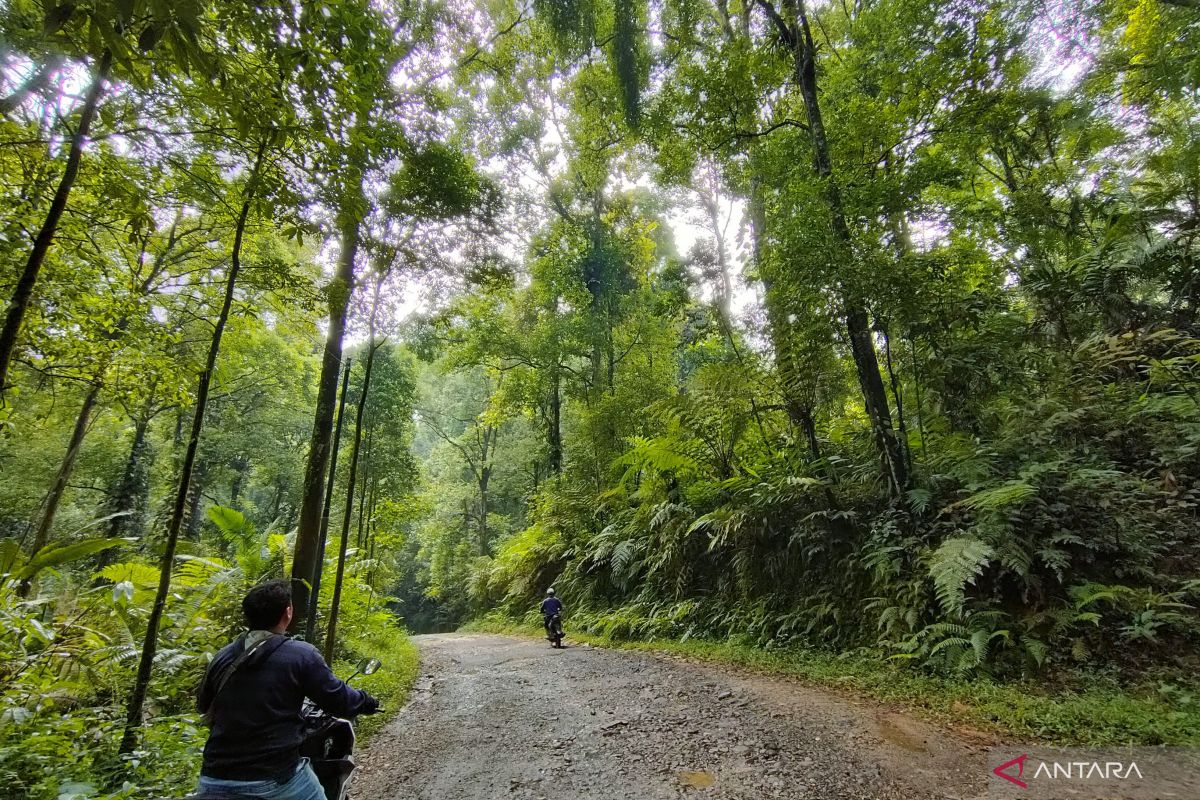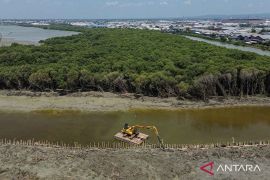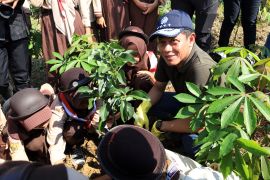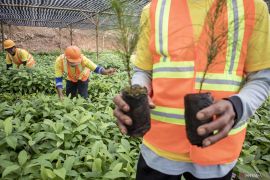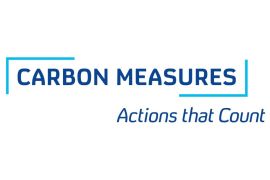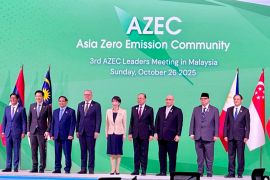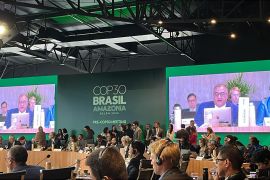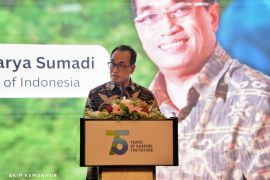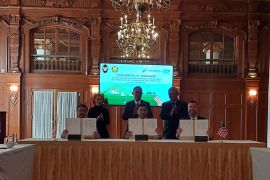This has prompted countries, especially archipelagic states like Indonesia, to invest more in mitigation measures.
Even before ratifying the Paris Agreement in 2016, the Indonesian Government moved to take steps to mitigate and adapt to the new reality.
The steps included the launch of the Climate Villages program in 2012 to prepare citizens at the grassroots level to face climate change impacts.
Moreover, the government has been consistent in pursuing the decarbonization of the two sectors contributing the most to carbon emissions in Indonesia: forestry and other land uses (FOLU) and energy.
Here, it should be noted that the optimal implementation of climate initiatives requires the central and regional governments to allocate and mobilize large budgets.
With that in mind, it is natural for Indonesia to seek financial support from foreign partners and also promote carbon trading through the Indonesia Carbon Exchange (IDXCarbon) launched last year.
Lakshmi Dhewanti, deputy for climate change control and governance of carbon economic value at the Environment Ministry, confirmed that the availability of sufficient funds has been one of the biggest stumbling blocks when it comes to climate action.
For that reason, the government has decided to pay special attention to innovations related to the financing of climate change actions and similar environmental initiatives.
So far, Indonesia has managed to secure funding commitments from international parties under results-based payment (RBP) schemes to check deforestation on its soil.
In early 2024, Indonesia received USD103.8 million from the Green Climate Fund (GCF) for its considerable success in cutting carbon emissions by 20.3 million tons during the 2014–2016 period.
Norway has been one of Indonesia’s notable partners in carbon emission reduction.
The Scandinavian country provided its Southeast Asian ally USD56 million and USD100 million in 2022 and 2023, respectively, for successfully lowering carbon emissions by 31.7 million tons in the period from 2016 to 2019.
Such funding partnerships are also being applied at the sub-national level in Indonesia.
For instance, the East Kalimantan provincial government will receive USD110 million from the Forest Carbon Partnership Facility Carbon Fund (FCPF-CP) for reducing emissions by 20 million tons over the past five years.
Meanwhile, for cutting 14 million tons of carbon emissions in 2020–2025, the Jambi provincial government will earn USD70 million from the BioCarbon Fund.
Earlier this month, the provincial government of West Kalimantan received a grant of Rp1 trillion (USD1 = around Rp15,878) for funding programs to protect local forests and empower those residing around the areas for the next seven years.
In addition to funding climate actions, Indonesia’s endeavors to economically value carbon emissions also aligned with the target of eight percent national economic growth set by President Prabowo Subianto.
That said, the Indonesian Government is well aware that the actualization of the target should be in tandem with the promotion and implementation of green, resilient, and inclusive development for all citizens.
In a speech at the UN Climate Change Conference or Conference of the Parties (COP) 29 in Baku, Azerbaijan, on November 13, 2024, Prabowo’s brother and special envoy for energy and environment, Hashim Djojohadikusumo, informed that Indonesia is targeting to optimize the carbon market to fund its green initiatives.
He highlighted that Indonesia has carbon credit reserves of 577 million tons to offer to countries and parties to financially support climate change control in the country.
Indonesia has managed to secure a mutual recognition arrangement (MRA) on bilateral carbon trading with Japan, directly aligning with the mandates put forward in the Paris Agreement, particularly Article 6.2 that promotes bilateral carbon cooperation and Article 6.4 on carbon trading.
The MRA, which is the world's first model of bilateral cooperation within the Paris Agreement framework, took effect on October 28, 2024.
It is expected to drive Indonesia and Japan to mutually recognize their mitigation methodologies, emission reduction calculations, the monitoring, reporting, and verification (MRV) system, and carbon credit certifications.
Involving the people
Indonesia has been operating the Environmental Fund Management Agency (BPDLH) to manage green funds received from domestic and international parties worth Rp24.96 trillion in total.
The plan is not only to mobilize the funds to support the implementation of central and regional governments’ climate actions and conservation measures but also to allow members of the public to access a portion of the funds under the Peoples’ Funds for the Environment program launched this year.
Joko Tri Haryanto, the president director of BPDLH, assured that the government is willing to financially support communities or groups keen to execute climate change initiatives as well as academicians requiring funds for applied environmental research.
The funds are available for pro-environment schools, environmental activists, winners of the “Kalpataru” environmental award, central waste banks, and those involved in sustainable waste management, among others. They can receive a portion of the funds in the form of a small-scale grant.
Regarding applied research, the BPDLH has channeled green funds to a total of 15 universities across Indonesia.
This way of managing green funds is expected to help Indonesia raise and bring issues concerning climate change and carbon emissions—which tend to be seen as high-level matters discussed in governmental and international settings—to a more grounded level in society, ensuring that its citizens are supported, empowered, and involved in environmental initiatives.
Related news: Jokowi discusses bilateral cooperation with UAE President in Dubai
Related news: Indonesia raises greenhouse gas emission reduction target
Editor: Rahmad Nasution
Copyright © ANTARA 2024
